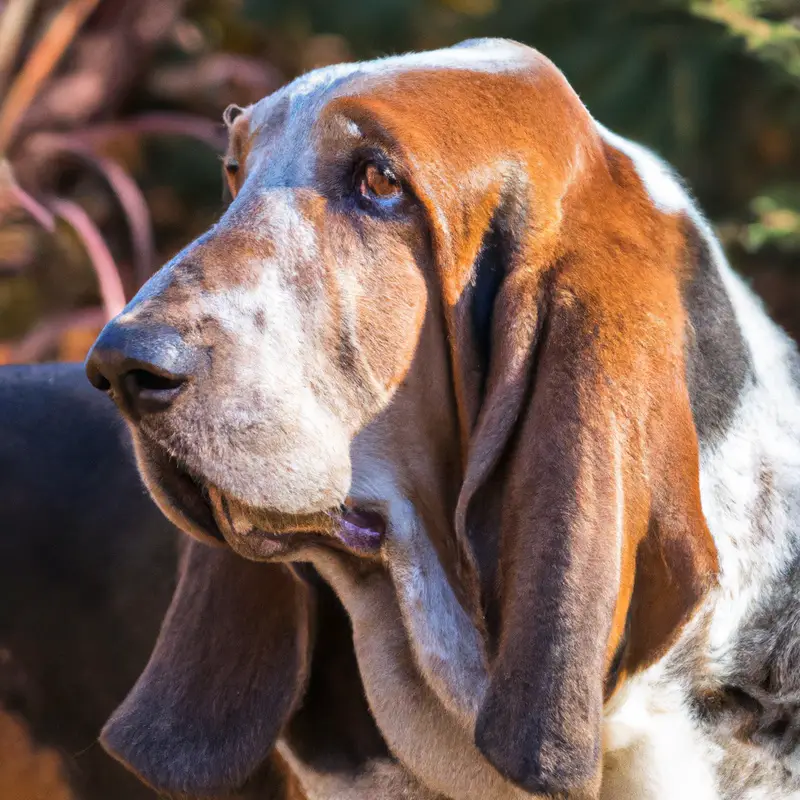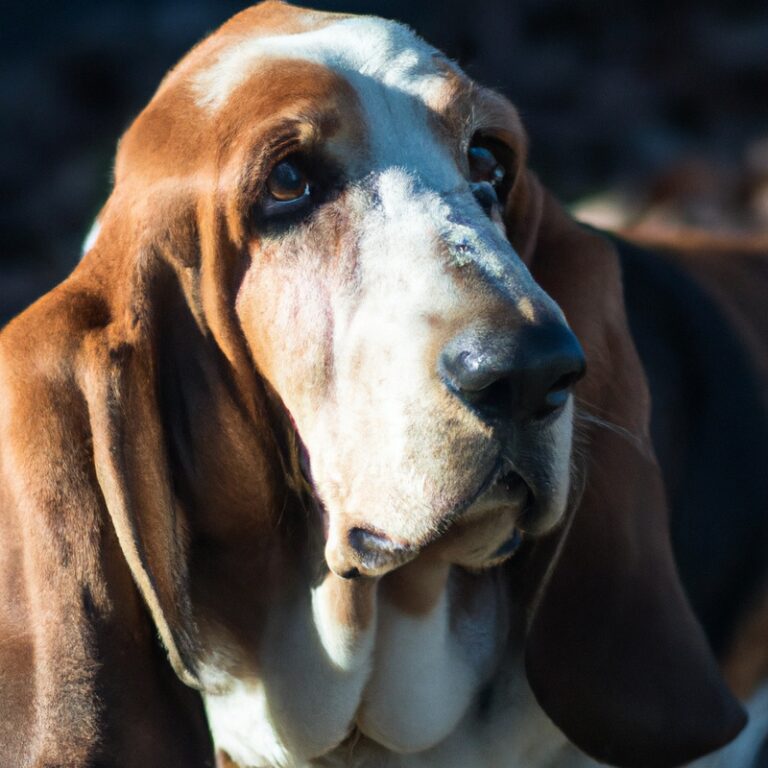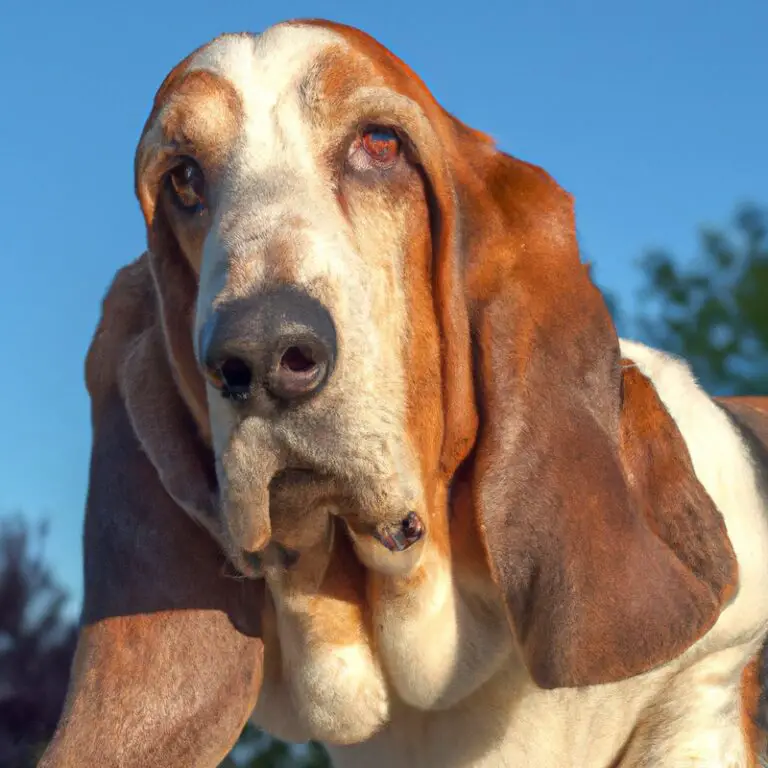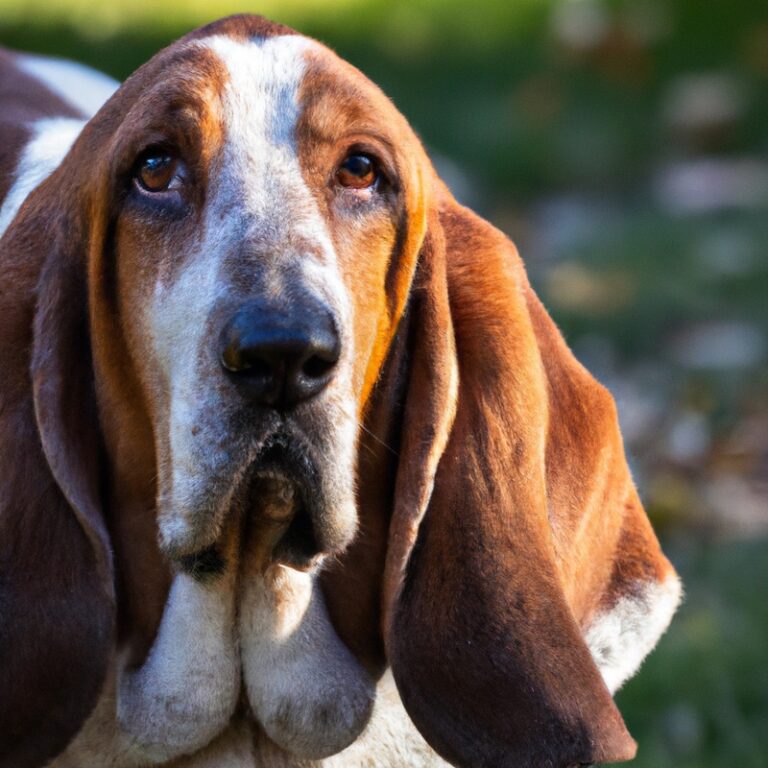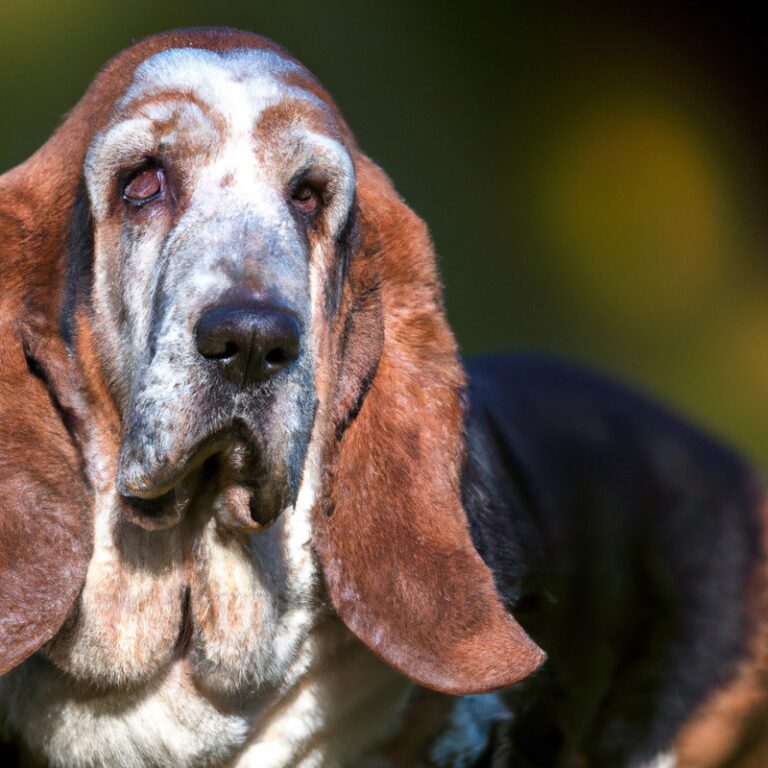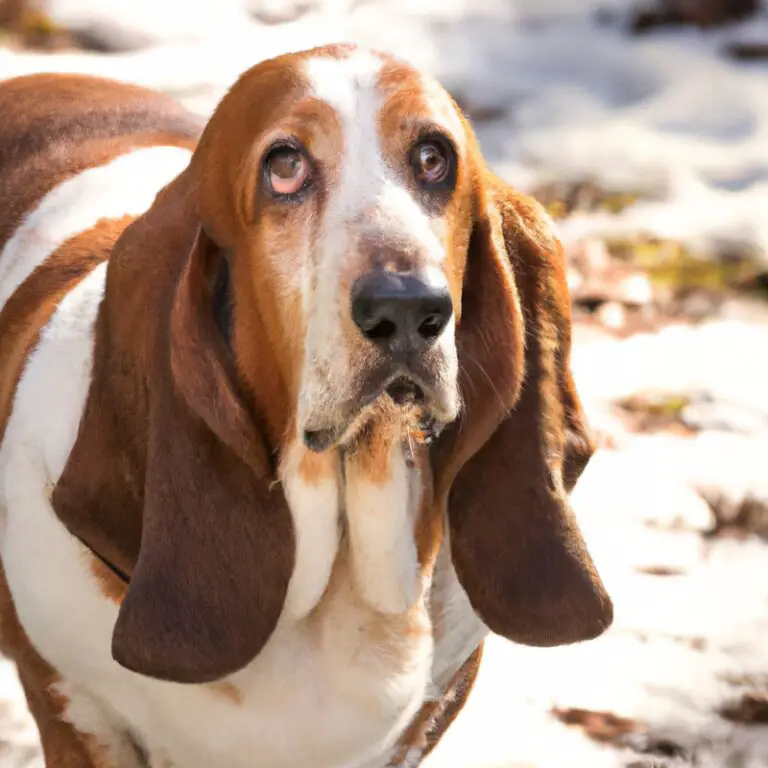Can Basset Hounds Be Trained For Scent Detection Work?
Key Takeaways:
- Basset Hounds possess excellent scent detection abilities.
- They can be successfully trained for scent detection work.
- Their long ears and wrinkles may pose some challenges during training.
- Consistency, patience, and positive reinforcement are key for training Basset Hounds for scent detection work.
Imagine having a furry detective by your side, with their keen sense of smell leading the way. Can Basset Hounds play this role?
As an expert in canine training, I can proudly say that these adorable droopy-eared companions have impressive scenting abilities, making them fantastic candidates for scent detection work.
In this article, we will dive into the world of Basset Hounds, exploring their natural scenting skills and the factors to consider when training them. Additionally, we’ll provide a step-by-step guide to help you train your Basset Hound for scent detection and discuss the challenges you may encounter along the way.
So, let’s embark on this olfactory adventure together!
| Criteria | Yes | No |
|---|---|---|
| Keen sense of smell | ✔️ | ❌ |
| Ability to track scents | ✔️ | ❌ |
| Trainability | ✔️ | ❌ |
| Focus and attention to task | ✔️ | ❌ |
| Determination to find scents | ✔️ | ❌ |
| Physical endurance | ✔️ | ❌ |
Understanding Basset Hounds and Their Scent Abilities
Overview of Basset Hound Breed
Basset Hounds are a distinctive breed known for their long ears, droopy eyes, and low, heavy build. They have a strong sense of smell and were originally bred for hunting small game.
Bassets are friendly, loyal, and affectionate dogs that make great companions.
They are generally calm and patient, but can be stubborn at times. Despite their laid-back nature, they still need regular exercise to stay healthy.
Bassets are known for their deep, melodious barks and can be quite vocal.
Overall, Basset Hounds are lovable and unique pets that bring joy to any household.
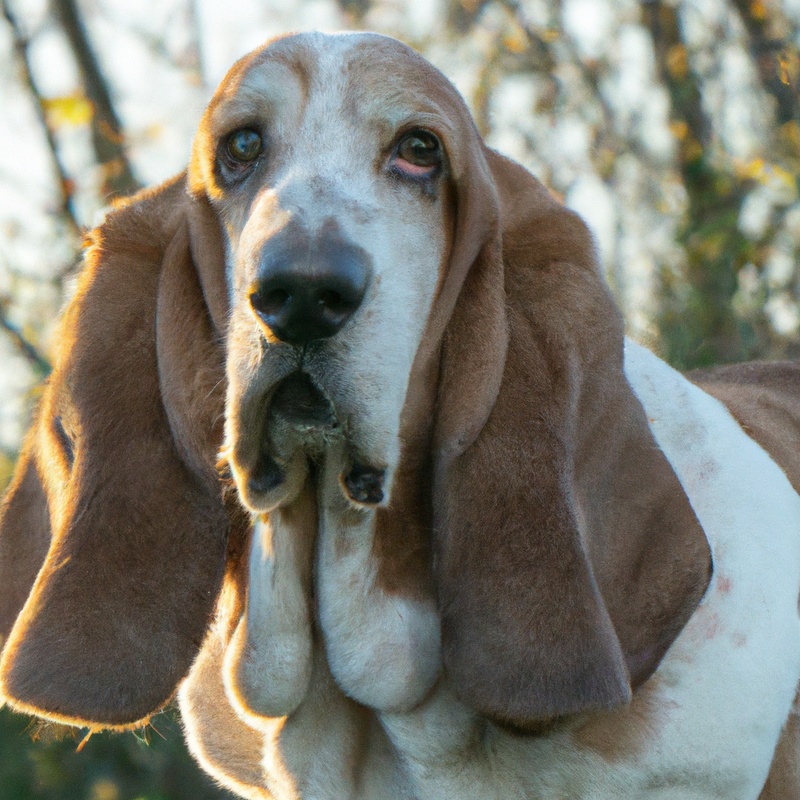
Basset Hounds’ Natural Scenting Skills
Basset Hounds have exceptional natural scenting skills. Their long ears and large nose help them pick up even the faintest smells.
With over 220 million scent receptors, they have one of the most sensitive noses among dog breeds.
Bassets were originally bred for hunting small game using their tracking abilities. Their low stature and slow gait also make them great at following scent trails.
They excel in scent detection work and are often used for search and rescue operations, medical detection, and law enforcement.

Importance of Scent Detection Work for Basset Hounds
Basset Hounds have exceptional scent detection abilities, making them valuable in various fields.
Their keen sense of smell allows them to detect and track scents that humans cannot perceive.
The importance of scent detection work for Basset Hounds lies in their ability to aid in search and rescue operations, medical detection, and law enforcement activities.
Their specialized skills help locate missing persons, identify medical conditions such as cancer or diabetes, and assist in detecting illegal substances.
With their incredible olfactory capabilities, Basset Hounds play a crucial role in these areas, making them indispensable assets.
Factors to Consider in Training Basset Hounds for Scent Detection
Assessing Basset Hound’s Temperament and Aptitude
Assessing a Basset Hound’s temperament and aptitude is an essential step in training them for scent detection work.
Firstly, it’s important to evaluate their overall personality traits, such as their level of sociability, confidence, and adaptability.
Secondly, considering their natural scenting abilities is crucial for determining their potential in scent detection work.
Lastly, observing their drive, focus, and problem-solving skills can give insights into their aptitude for this type of training.
By understanding their temperament and aptitude, you can tailor the training program to their specific needs and set realistic expectations for their progress.
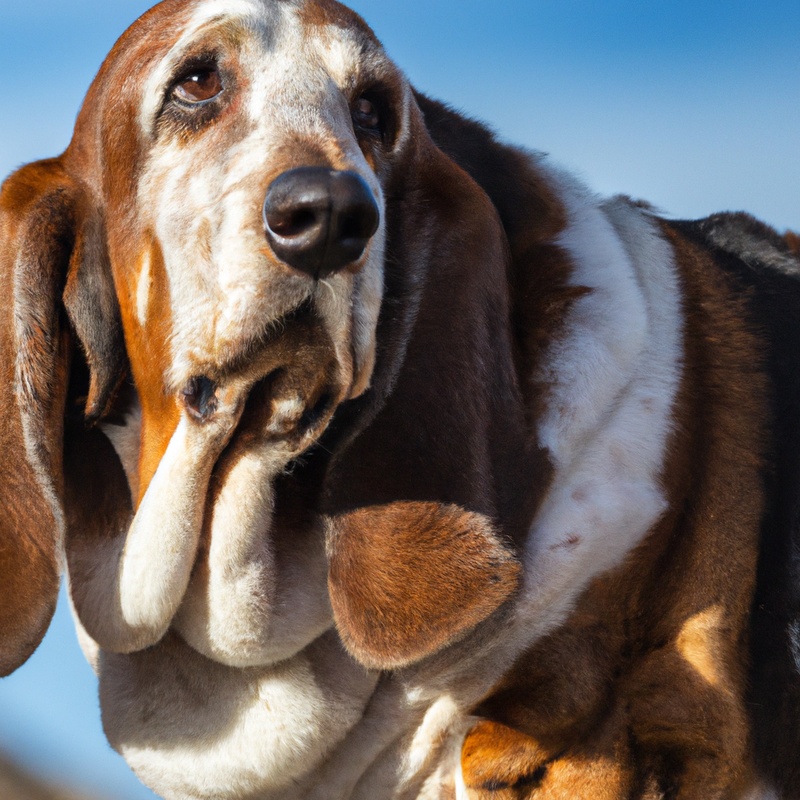
Choosing the Right Training Methods for Basset Hounds
When choosing the right training methods for your Basset Hound, it’s important to consider their unique traits and needs.
Positive reinforcement techniques work well with this breed, as they respond best to rewards and praise.
Using treats, toys, and verbal encouragement can be effective in motivating your dog during training sessions.
Consistency and patience are key, as Basset Hounds can be stubborn at times.
Remember to keep training sessions short and engaging to maintain their interest.
Adapt the training methods to suit your dog’s individual personality and learning style for the best results.
Setting Realistic Goals and Expectations for Training
When training a Basset Hound for scent detection work, it’s important to set realistic goals and expectations.
These dogs have a natural talent for following scents, but they may not achieve the same level of proficiency as other breeds.
Here are some key points to consider:
- Basset Hounds have a strong sense of smell, but they are known for their stubbornness and independent nature. Training may take longer and require more patience compared to other breeds.
- It’s crucial to understand that not all Basset Hounds will excel in scent detection work. Some may struggle with certain aspects of the training, such as scent discrimination or distractions.
- Setting achievable goals is essential. Start with basic obedience training before introducing scent work gradually. Celebrate small victories along the way to keep both you and your Basset Hound motivated.
- Remember that each dog is unique, and progress may vary. Stay consistent, use positive reinforcement, and adapt your training methods to suit your Basset Hound’s individual needs and abilities.
By setting realistic goals and being mindful of your Basset Hound’s limitations, you can create a positive and rewarding training experience for both of you.
Step-by-Step Guide to Training Basset Hounds for Scent Detection
Building a Strong Foundation with Basic Obedience Training
When training your Basset Hound for scent detection work, building a strong foundation with basic obedience training is essential. Start with teaching your dog key commands such as sit, stay, and come.
Use positive reinforcement methods like treats and praise to reward desired behaviors.
Consistency and patience are key, as Basset Hounds can be independent and slow learners at times. Practice these basic obedience skills regularly to establish a strong and reliable bond with your dog.
Progressing to Advanced Scent Detection Training
Now that your Basset Hound has mastered the basics of scent detection training, it’s time to progress to advanced training.
This stage focuses on honing your dog’s skills and expanding their scent detection abilities.
- Introduce new scents: Start by introducing your dog to a variety of scents. This helps them learn to differentiate between different odors and strengthens their scent discrimination skills.
- Increase difficulty: Gradually increase the difficulty level of the scent detection exercises. This can include hiding scents in more challenging locations or using containers with multiple scents to test your dog’s ability to pinpoint the target odor.
- Diversify training environments: Take your training sessions outside and expose your Basset Hound to different environments. This helps them adapt to varying scent conditions and improves their ability to work in real-world scenarios.
- Strengthen obedience cues: Continue reinforcing your dog’s obedience cues during scent detection exercises. This ensures they remain focused and responsive to your commands, even in distracting situations.
Remember, progressing to advanced scent detection training requires patience, consistency, and a deep understanding of your Basset Hound’s capabilities.
With practice and dedication, your dog can become a skilled scent detection companion.
Common Challenges and Solutions in Training Basset Hounds for Scent Detection
Addressing Basset Hounds’ Independent Nature and Distraction Issues
Basset Hounds have a reputation for being independent and easily distracted, which can pose challenges in scent detection training. To address their independent nature, it’s important to establish strong leadership and consistent training routines.
Providing clear and concise instructions, along with positive reinforcement, helps keep them focused.
Additionally, breaking down training sessions into smaller, manageable tasks can help overcome their short attention spans. Consistency and patience are key when addressing these issues with Basset Hounds to ensure successful scent detection training.
Dealing with Basset Hounds’ Slow Learning Pace in Scent Detection
Basset Hounds are known for their slow learning pace, which can present challenges in scent detection training. To deal with this, patience is key.
Breaking down training sessions into short, frequent sessions can help keep them engaged.
Using high-value rewards can motivate them to learn faster. It’s also important to keep training sessions fun and interesting to maintain their focus.
Consistency and repetition are essential in reinforcing the desired behavior.
Celebrate small wins along the way to keep them motivated and build their confidence.
Handling Basset Hounds’ Low Motivation and Reinforcement Strategies
Basset Hounds can sometimes be low in motivation, which can make training a challenge. However, there are effective strategies to handle this.
- Use high-value rewards: Bassets may respond better to rewards that they find especially enticing, such as tasty treats or interactive toys.
- Break training into short sessions: Bassets may lose interest if training sessions are too long. Keep sessions short and engaging to maintain their motivation.
- Incorporate positive reinforcement: Positive reinforcement, such as praise, treats, or play, can encourage and motivate your Basset Hound during training.
- Vary the training routine: Bassets can become bored easily, so it’s important to keep training sessions interesting by introducing new challenges and activities.
- Be patient and persistent: Bassets may take longer to grasp certain concepts, so it’s important to be patient and provide consistent training. Don’t give up!
By using these reinforcement strategies and understanding your Basset Hound’s individual needs, you can effectively handle their low motivation and make training a fun and rewarding experience for both of you.
Benefits and Applications of Scent Detection Work for Basset Hounds
Search and Rescue Operations with Basset Hounds
Search and Rescue Operations with Basset Hounds: Basset Hounds can be trained for search and rescue operations due to their exceptional sense of smell and tracking abilities.
Their keen sense of scent enables them to locate missing persons, even in challenging terrain.
Their low stature also allows them to navigate difficult areas.
Basset Hounds are particularly well-suited for search and rescue operations in dense brush or wooded areas.
Their determination and persistence make them valuable assets in locating and rescuing individuals in need.
Medical Detection and Assistance Work with Basset Hounds
Basset Hounds have proven themselves to be valuable assets in medical detection and assistance work.
Their exceptional scenting abilities allow them to detect various medical conditions such as cancer, diabetes, and seizures.
These dogs can be trained to recognize specific odors associated with certain medical conditions and alert their handlers accordingly.
In addition to detection work, Basset Hounds can also provide assistance and support to individuals with physical or mobility limitations.
Their calm and gentle nature makes them ideal companions for those in need of emotional support.
Basset Hounds in Law Enforcement and Detection Agencies
Basset Hounds have proven to be valuable assets in law enforcement and detection agencies.
Their exceptional scenting abilities make them ideal for various tasks.
Bassets are commonly used for tracking missing persons, locating evidence, and uncovering illegal substances.
Their keen sense of smell and determination enable them to follow scent trails for long distances.
Basset Hounds’ calm and friendly nature also makes them well-suited for interacting with members of the public during search operations.
Their unique skills and characteristics make them valuable members of these agencies.
Final Verdict
Basset Hounds can indeed be trained for scent detection work, thanks to their natural scenting abilities and strong determination.
However, it is crucial to consider factors such as their temperament, choosing the right training methods, and setting realistic goals.
By following a step-by-step training guide and addressing common challenges, owners can successfully train Basset Hounds for scent detection.
The benefits and applications of this work, including search and rescue operations, medical detection, and law enforcement, make it a valuable pursuit for both the dogs and their handlers.

